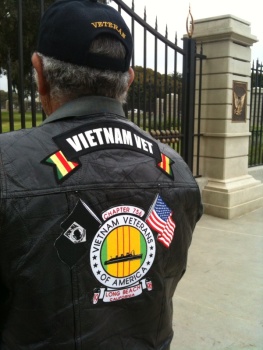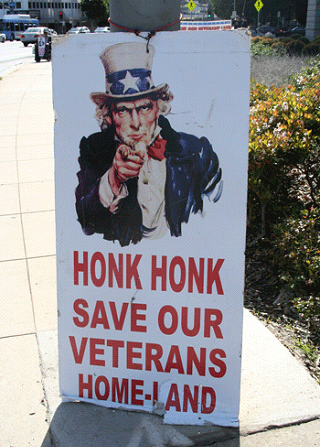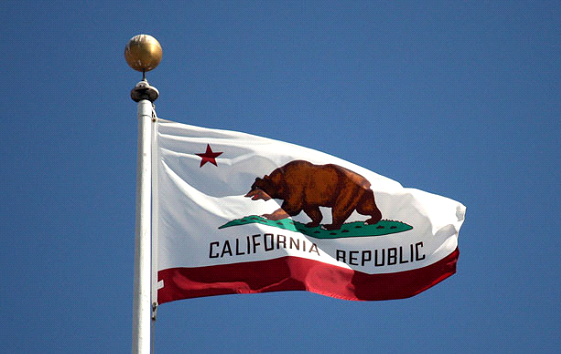 From the Center for the Study of Dirty Wars: my Q&A with JEREMY SCAHILL – he wrote about Obama’s secret wars in Yemen, Somalia and elsewhere in his new book DIRTY WARS: The World is a Battlefield. It entered the New York Times bestseller list at #5 last week.
From the Center for the Study of Dirty Wars: my Q&A with JEREMY SCAHILL – he wrote about Obama’s secret wars in Yemen, Somalia and elsewhere in his new book DIRTY WARS: The World is a Battlefield. It entered the New York Times bestseller list at #5 last week.
At the LA Review of Books, HERE.
Journalism
The Harvard Ph.D. & the Hispanics’ IQ: TheNation 5/11
 He’s probably the first person ever to lose his job because of his Harvard Ph.D. dissertation–but why did Harvard give him a Ph.D. in the first place?
He’s probably the first person ever to lose his job because of his Harvard Ph.D. dissertation–but why did Harvard give him a Ph.D. in the first place?
“The Harvard PhD and the Hispanics’ IQ: How Jason Richwine’s Dissertation Got Him Fired by the Heritage Foundation.” TheNation.com, May 11, 2013.
http://www.thenation.com/blog/174291/harvard-phd-and-hispanics-iq-how-jason-richwines-dissertation-got-him-fired-heritage-fou
FDR: Good for the Jews? LA Review of Books, 5/9
 WHEN GEORGE BUSH saw pictures of Auschwitz at Yad Vashem, Israel’s museum of the Holocaust, he said — with “tears in his eyes” — “we should have bombed it.” Could he have read The Abandonment of the Jews: America and the Holocaust 1941–1945 by David Wyman? That’s the 1984 book that made the refusal to bomb Auschwitz the lasting symbol of FDR’s failure to help Jews in World War II Europe. . . .
WHEN GEORGE BUSH saw pictures of Auschwitz at Yad Vashem, Israel’s museum of the Holocaust, he said — with “tears in his eyes” — “we should have bombed it.” Could he have read The Abandonment of the Jews: America and the Holocaust 1941–1945 by David Wyman? That’s the 1984 book that made the refusal to bomb Auschwitz the lasting symbol of FDR’s failure to help Jews in World War II Europe. . . .
Review of FDR and the Jews, at LA Review of Books, HERE.
Hands Off Yoko! Oil & Gas Drillers Complain: TheNation 4/1
 Fox News featured the story: The Independent Oil & Gas Association, our friendly frackers, filed a formal complaint against Yoko Ono and her organization, Artists Against Fracking, claiming the group is violating New York state law by failing to register as lobbyists. They seem to have forgotten that “the right of the people” to “petition their government for a redress of grievances” is protected by the First Amendment to the Constitution…
Fox News featured the story: The Independent Oil & Gas Association, our friendly frackers, filed a formal complaint against Yoko Ono and her organization, Artists Against Fracking, claiming the group is violating New York state law by failing to register as lobbyists. They seem to have forgotten that “the right of the people” to “petition their government for a redress of grievances” is protected by the First Amendment to the Constitution…
. . . continued at TheNation.com http://tinyurl.com/dyru6mk
Homeless Vets vs. the VA: an LA Story Continues: TheNation 3/25
 Greg Valentini is a homeless vet in Los Angeles who participated in the assault on Tora Bora that sought Osama bin Laden. He’s also a plaintiff in the class action suit brought by the ACLU of Southern California (ACLU-SC) arguing that the VA has “misused large portions of its West Los Angeles campus and failed to provide adequate housing and treatment for the people it was intended to serve.” . . . continued at TheNation.com, http://www.thenation.com/blog/173498/homeless-vets-vs-va-la-story-continues.
Greg Valentini is a homeless vet in Los Angeles who participated in the assault on Tora Bora that sought Osama bin Laden. He’s also a plaintiff in the class action suit brought by the ACLU of Southern California (ACLU-SC) arguing that the VA has “misused large portions of its West Los Angeles campus and failed to provide adequate housing and treatment for the people it was intended to serve.” . . . continued at TheNation.com, http://www.thenation.com/blog/173498/homeless-vets-vs-va-la-story-continues.
LA’s Homeless Vets: The Nation 3/21
 The VA has almost 400 acres of land in Brentwood, part of which it has leased for rent-a-car storage and a commercial laundry. Meanwhile, homeless vets sleep on the street outside the locked gates.
The VA has almost 400 acres of land in Brentwood, part of which it has leased for rent-a-car storage and a commercial laundry. Meanwhile, homeless vets sleep on the street outside the locked gates.
Why is that?
“LA’s Homeless Vets” in The Nation: http://www.thenation.com/
For-Profit Fiasco: California Public Colleges Turn to Web Courses: The Nation 3/14
 Here’s how California treats its public colleges and universities: first, cut public funds, and thus classes; then wait for over-enrollment, as students are unable to get the classes they need to graduate; finally, shift classes online, for profit.. . .
Here’s how California treats its public colleges and universities: first, cut public funds, and thus classes; then wait for over-enrollment, as students are unable to get the classes they need to graduate; finally, shift classes online, for profit.. . .
. . . continued at TheNation.com, HERE
“Dueling over Watergate”: LA Times 3/9
 I do not think Watergate should be the only display at the Nixon Library. The problem is that it’s missing from the new exhibit in Yorba Linda. I didn’t criticize the library or the National Archives for what is in the new show; I criticized them for what has been left out.
I do not think Watergate should be the only display at the Nixon Library. The problem is that it’s missing from the new exhibit in Yorba Linda. I didn’t criticize the library or the National Archives for what is in the new show; I criticized them for what has been left out.
Is it really necessary to explain why Watergate belongs in the story of Nixon’s life? . . . continued at the LA Times, HERE
“Another Watergate Gap”: LA Times 3/1
 The Nixon Presidential Library and Museum opened a new exhibit in Yorba Linda and online Feb. 15, “Patriot, President, Peacemaker.” It covers Richard Nixon‘s entire life, like the permanent installation there, and claims to present “a fuller picture” than ever before. But there’s a gap, reminiscent of the 18 1/2-minute gap in the famous White House tapes. . . . What’s missing is Watergate.
The Nixon Presidential Library and Museum opened a new exhibit in Yorba Linda and online Feb. 15, “Patriot, President, Peacemaker.” It covers Richard Nixon‘s entire life, like the permanent installation there, and claims to present “a fuller picture” than ever before. But there’s a gap, reminiscent of the 18 1/2-minute gap in the famous White House tapes. . . . What’s missing is Watergate.
. . . continued at LA Times, HERE.
Oh Yoko! Ms. Ono at 80: The Nation 2/15
 February 18 is Yoko Ono’s 80th birthday—it’s a day to celebrate her art, music and activism. She’s done more in the last year than most of us do in a decade: campaigned against fracking and honored Julian Assange; mounted a major retrospective of her art in London last summer at the prestigious Serpentine Gallery, and another, bigger one in Frankfurt last week. . .
February 18 is Yoko Ono’s 80th birthday—it’s a day to celebrate her art, music and activism. She’s done more in the last year than most of us do in a decade: campaigned against fracking and honored Julian Assange; mounted a major retrospective of her art in London last summer at the prestigious Serpentine Gallery, and another, bigger one in Frankfurt last week. . .
. . . continued at TheNation.com HERE (or HERE )